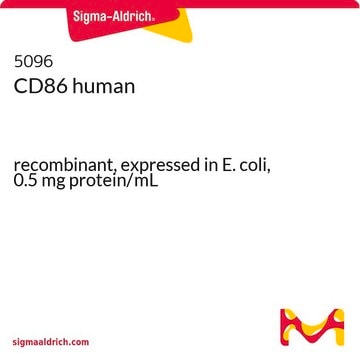Yes, a Microcon DNA fast flow device can be used to isolate DNA from a crude cell lysis preparation. However, lysates typically contain heavy particulate contamination, so clarification spins may be necessary to remove particulates before attempting ultrafiltration.
MRCF0R100
Microcon® DNA Fast Flow Centrifugal Filters
sample volume 0.5 mL, Ultracel® regenerated cellulose membrane (low binding)
Synonym(s):
Centrifuge concentrator
About This Item
Recommended Products
material
Ultracel® regenerated cellulose membrane (low binding)
polyacetal base (membrane support)
polycarbonate device top
polypropylene tube (for filtrate/concentrate)
silicone O-ring (medical-grade)
Quality Level
sterility
non-sterile
feature
holdup volume> 10 μL
packaging
pkg of 100 ea
manufacturer/tradename
Microcon®
parameter
0.5 mL sample volume
technique(s)
DNA purification: suitable
RNA purification: suitable
L
4.50 cm (1.8 in.)
diam.
12.3 mm
filtration area
0.32 cm2
working volume
0.5 mL
shipped in
ambient
Related Categories
General description
Application
Features and Benefits
- high recovery for small volumes with reverse spin
- low-binding Ultracel® membrane
- fast processing
- yield concentration factors <20X for consistent reproducibility
Linkage
Legal Information
Certificates of Analysis (COA)
Search for Certificates of Analysis (COA) by entering the products Lot/Batch Number. Lot and Batch Numbers can be found on a product’s label following the words ‘Lot’ or ‘Batch’.
Already Own This Product?
Find documentation for the products that you have recently purchased in the Document Library.
Customers Also Viewed
Related Content
Microcon® Centrifugal Filters simply and efficiently concentrate and desalt solutions of DNA, RNA, protein or other macromolecules, using any centrifuge that can accept 1.5 mL tubes.
-
Can I use a Microcon DNA fast flow device to isolate DNA from a crude cell lysis preparation such a freeze thaw in TE buffer or a chelex 100 extraction?
1 answer-
Helpful?
-
-
The user guide indicates you can't autoclave these microcon, but can you sterilize them in a UV Crosslinker?
1 answer-
The Microcon devices are non-sterile. These devices cannot be sterilized by UV or autoclaving. However, it is possible to sanitize the devices with 70% ethanol. Please see the protocol for sanitization below:
1. Reagent Preparation: 70% Ethanol solution (v/v) is prepared by dilution in distilled water. Both the ethanol solution and distilled water used for rinsing should be filter-sterilized using sterile, 0.22 µm sterilizing grade filter device.
2.Sanitization Protocol:
A. Fill the Microcon device to its published capacity with filter-sterilized 70% ethanol, and cap the unit (note that the collection tubes can be sanitized in the same manner).
B. Invert device by hand or in an end-over-end mixer to continuously wet all internal surfaces of the device.
C. Incubate for a minimum of 5 minutes (note that the device can be capped and left for up to 24 hours if it is not going to be used immediately).
D. Spin at recommended G-force using appropriate centrifuge until at least 50% of the volume has passed through the device.
E. Aseptically discard any remaining ethanol from the filter device and filter collection tube.
F. Immediately rinse away residual ethanol by adding the filter-sterilized water to the device's published capacity, mix gently to wet all areas, and centrifuge until at least 50% of the volume has passed through the device.
G. Discard any remaining liquid from both the concentrator device and filter collection tube before use.
DO NOT let the filter membrane dry out in concentrator unit. If the devices are not to be used immediately, fill the devices with filter-sterilized distilled water, cover, and store refrigerated. Remove liquid from device as previously described prior to use.
Helpful?
-
-
Has the color of the Microcon DNA Fast Flow become brighter blue?
1 answer-
Yes, the color of the device has changed. A new blue colorant and clear resin have replaced the original blue reservoir resin, which has been discontinued. Both old and new resin are HP2 Polycarbonate. The functionality of the product has not changed.
Helpful?
-
Active Filters
Our team of scientists has experience in all areas of research including Life Science, Material Science, Chemical Synthesis, Chromatography, Analytical and many others.
Contact Technical Service




![[MTC"] Bio Tube Rack to hold, 30 x 15 mL and 20 x 50 mL tubes, orange, pack of 5 ea](/deepweb/assets/sigmaaldrich/product/images/432/511/7cee7bd9-30da-4244-94ce-fae01047f4d2/640/7cee7bd9-30da-4244-94ce-fae01047f4d2.jpg)


